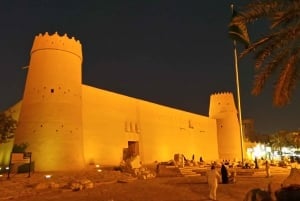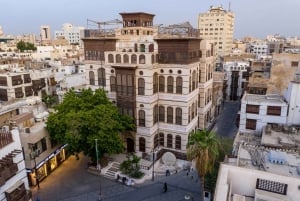Government
Government in Saudi Arabia is based on a hereditary and absolute monarchy, the House of Saud, headed by King Abdullah Bin Abdul Aziz, also known as the Custodian of the Two Holy Mosques, the Head of State, and the commander in chief of the military.
The Kingdom was founded in 1932 by Abdulaziz bin Abd al-Rahman Al Saud (Ibn Saud). Saudi Arabia’s current monarch is Ibn Saud's son, King Abdullah bin Abdulaziz Al Saud, who has ruled since 2005 after King Fahd’s death. The King's heir apparent is Crown Prince Salman bin Abdulaziz al-Saud, who is also Deputy Prime Minister.
A document entitled the Basic Law of Governance issued by the late King Fahd in 1992 describes Saudi Arabia as ‘a sovereign Arab Islamic state. Its religion is Islam, and its constitution is the Holy Qur'an and the prophet's (peace be upon him) Sunnah (traditions). The Kingdom’s judicial system is based on Islamic law (Sharia) for both criminal and civil cases. The Cabinet, or Council of Ministers, is composed of twenty-two government ministries, whose ministers are appointed by royal decree for four-year terms.
There are no political parties in Saudi Arabia. But there are governors and councils for each of the 13 provinces whose mandate is to facilitate the development of the province. In 2005, the first local elections for men only were held across 178 municipalities. But changes were in sight. In February 2009, Norah Al-Fayez was appointed by King Abdullah in a first ever cabinet-level post as deputy minister for women's education. Two years later, in 2011, King Abdullah announced that in the 2015 municipal elections, women would also be allowed to run and to vote. Photo credits on this page: Blue Abaya Photography













